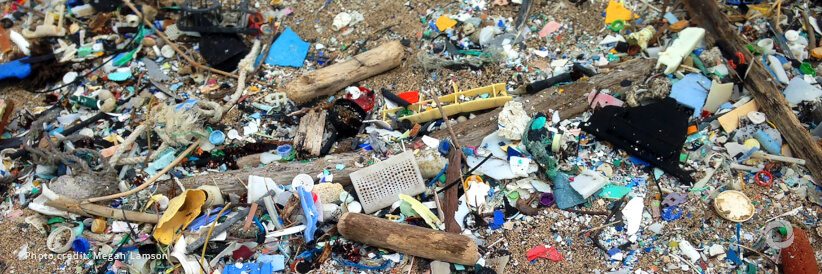The world traded about 369 million tonnes of plastics in 2021 – enough to fill over 18 million trucks. The queue would wrap around the globe 13 times. Since less than 10% of all plastics produced have been recycled, most of the products in those trucks will end up littering the streets and flooding the seas. But nature abounds in sustainable materials like bamboo, sand, banana plants, and algae that could be used to make eco-friendly versions of the straws, shopping bags, bottles, food wrappers, and other plastic products people consume daily.
According to research by PEW, plastic substitutes could cut global plastic waste by around 17% by 2040 – about 63 million tonnes less, or 3.5 million fewer trucks in the queue.
“Besides the benefits to the planet, the shift offers economic opportunities. But countries and companies have to work together and across borders to scale up production and reduce trade barriers,” said Henrique Pacini, a UNCTAD economist working on trade and environment issues.
A trillion-dollar opportunity
Worldwide trade in plastics substitutes and their products was worth around $388 billion in 2020, according to the latest data – about one-third the amount traded in plastics made from fossil fuels.
“This shows there’s already a significant market for plastic substitutes and there’s huge potential for growth,” Mr. Pacini said.
Two-thirds of global exports of plastic substitutes are in the form of raw materials, mostly from developing countries.
“Each country can focus on the materials they have an advantage in producing,” Mr. Pacini said, “such as coconut husks and bamboo in many island nations in the Caribbean Sea and Indian and Pacific Oceans.”
But many companies in developing countries lack the technologies and capacities needed to make finished or semi-finished products on a large scale. This offers an opportunity for companies in developed countries to invest in developing countries and bolster their technology and skills.
“Scaling up the production of plastic substitutes will depend on strengthening collaboration between developed and developing countries,” Mr. Pacini said.
Seaweed packaging
UNCTAD is working with NotPla, a London-based start-up using seaweed to make biodegradable packaging alternatives. NotPla recently began trials in Chile and Ghana, where it’s working with the UN and the two countries’ environment ministries to test seaweed takeaway boxes and edible packaging for liquids.
The firm is assessing whether its packaging can replace the water sachets currently used across Africa, its CEO Rodrigo Garcia said during a workshop on plastic substitutes organized in December 2022 by UNCTAD and the World Trade Organization (WTO).
UNCTAD is also working with NotPla and the Government of Barbados to expand the firm’s services and investment in Caribbean nations to reduce the use of single-use plastics.
An unfair playing field
Besides boosting production across borders, countries need to work together to tackle trade barriers and remove incentives that keep the playing field unfair for plastic substitutes.
Most fossil fuel-based plastics benefit more from subsidies and lower tariffs – a type of tax on imported goods – than plastic substitutes. For example, the average tariff worldwide for plastic straws is 7.7%. For paper straws, it’s 13.3%, making this plastic-free version less competitive.
“Put simply, current tariffs are making plastics cheaper, and therefore people are reluctant to stop using them and adopt nature-based substitutes,” says David Vivas, a UNCTAD legal officer working on trade and environment issues.
Harmonized trading codes
To help create a fairer playing field, UNCTAD has developed the first list of plastic substitutes and their respective harmonized codes (HS). HS codes are part of an internationally standardized system of names and numbers that allow countries to be on the same page when classifying products before export and import.
UNCTAD’s list of 282 codes complements the work of the UN Intergovernmental Negotiating Committee, which is negotiating a legally binding instrument to end plastic pollution. It also supports the WTO’s dialogue on plastic pollution and the role of substitutes and alternatives.
And it can help implement the recently adopted Kunming-Montreal Global Biodiversity Framework, which sets new targets for protecting biodiversity. These include reforming harmful fuel subsidies, such as those that make plastic products more competitive.
A trade and pollution dashboard
UNCTAD’s Trade and Pollution Dashboard, which provides a life-cycle analysis for various materials, allows companies and countries to fully grasp the environmental benefits and drawbacks of different plastic substitutes.
“Together, the harmonized codes and dashboard can help countries identify promising plastic substitutes, cut tariffs, and address non-tariff barriers to these products. If such incentives for polluting materials were reduced,” he said, “a plastic-free economy could be achieved faster,” Mr. Vivas says.

